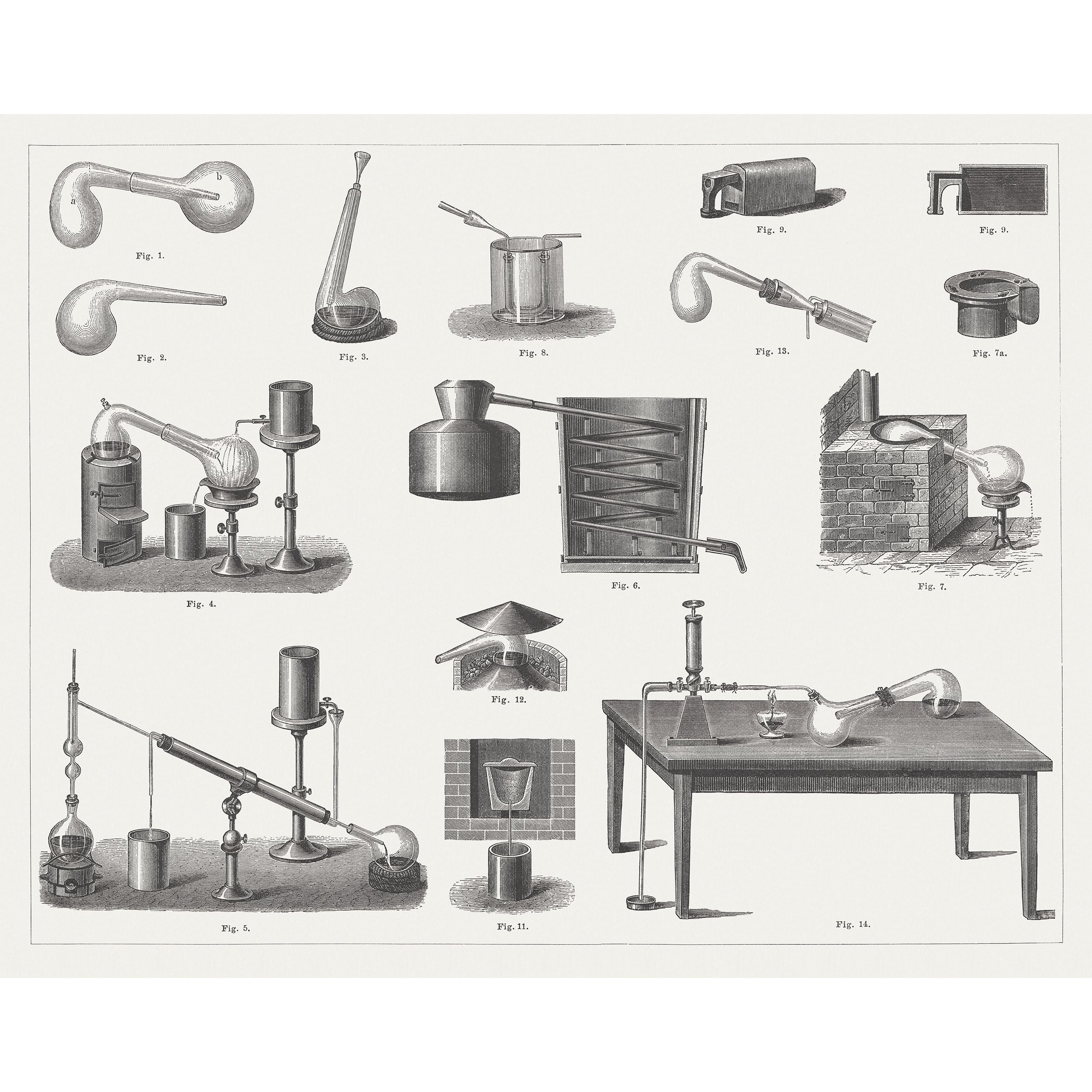
Top Five Tips for Buying Distillery Equipment
Tip #1: Consider Pneumatic vs. Explosion-Proof for cost and safety
For many distillers we work with, safety is a primary concern that underlies every purchase. If you're still learning the ropes, a great place to start is with the concept of the "Electric Sombrero of Death". It's a strange name, but a good idea to understand.
There are a few excellent articles here and here that go into detail about The Electric Sombrero of Death. Here's the gist of it: flammable vapors are the primary source of potential ignition in a distillery. Flammable vapors are most likely to be present in case of equipment failure. In the case of a still, the areas with the greatest danger extend five feet from the still in all directions, and in a 25-foot radius around the still where liquid could puddle and produce flammable vapors about three feet up. If you take a cross-section of this area it's shaped a bit like a sombrero. Any electrical equipment in this area should be rated for use in at least Class I, Div 2 (a.k.a. C1D2) environments. C1D2 is a designation indicating that the equipment is approved for use in areas where flammable vapors may be present in case of equipment failure. Class I, Div 1 (C1D1) indicates that flammable vapors are always present. This designation is usually reserved for places like oil refineries and grain mills where an errant flame spells disaster.
Problem is, C1D2 equipment can get very expensive, very fast. And if it isn't expensive, it usually sacrifices elsewhere—perhaps it's less powerful, or has fewer features. For example, we sell the Jabsco SQN 50 XP pump to distilleries. It features an explosion-proof housing that contains an electronic speed control, a.k.a. a VFD. That VFD allows it to operate like a normal, full-featured pump. You can reverse the direction of flow and adjust its speed. However, this housing component alone can bring the cost of the pump well over $12,000, making it out of reach for many startup distilleries.
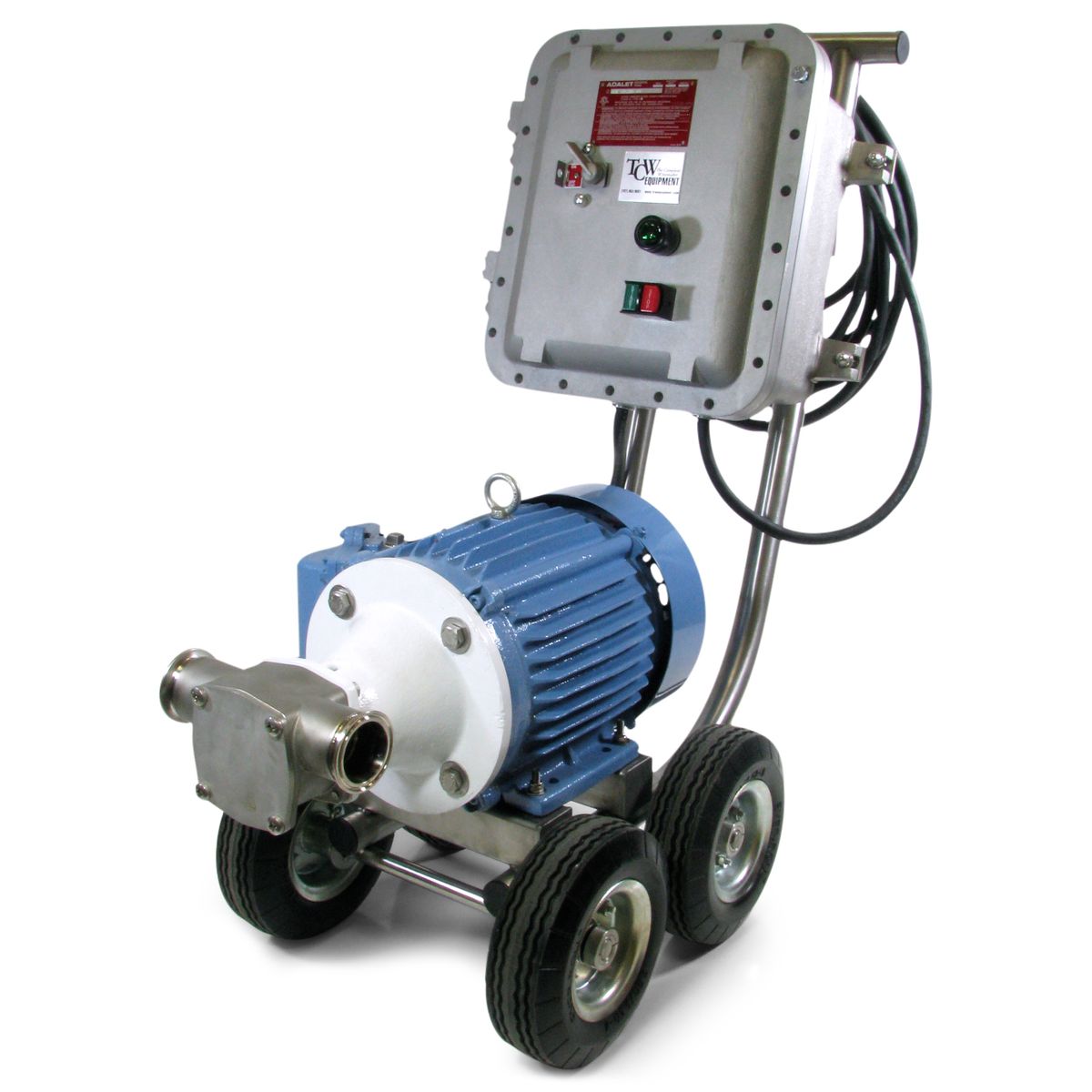
We also offer the XN 114 Centrifugal Pump. It does away with the explosion-proof speed control and just uses an explosion-proof start/stop switch, which is much cheaper. However, that means the pump runs full speed all the time. You must use a valve to manually control the flow.
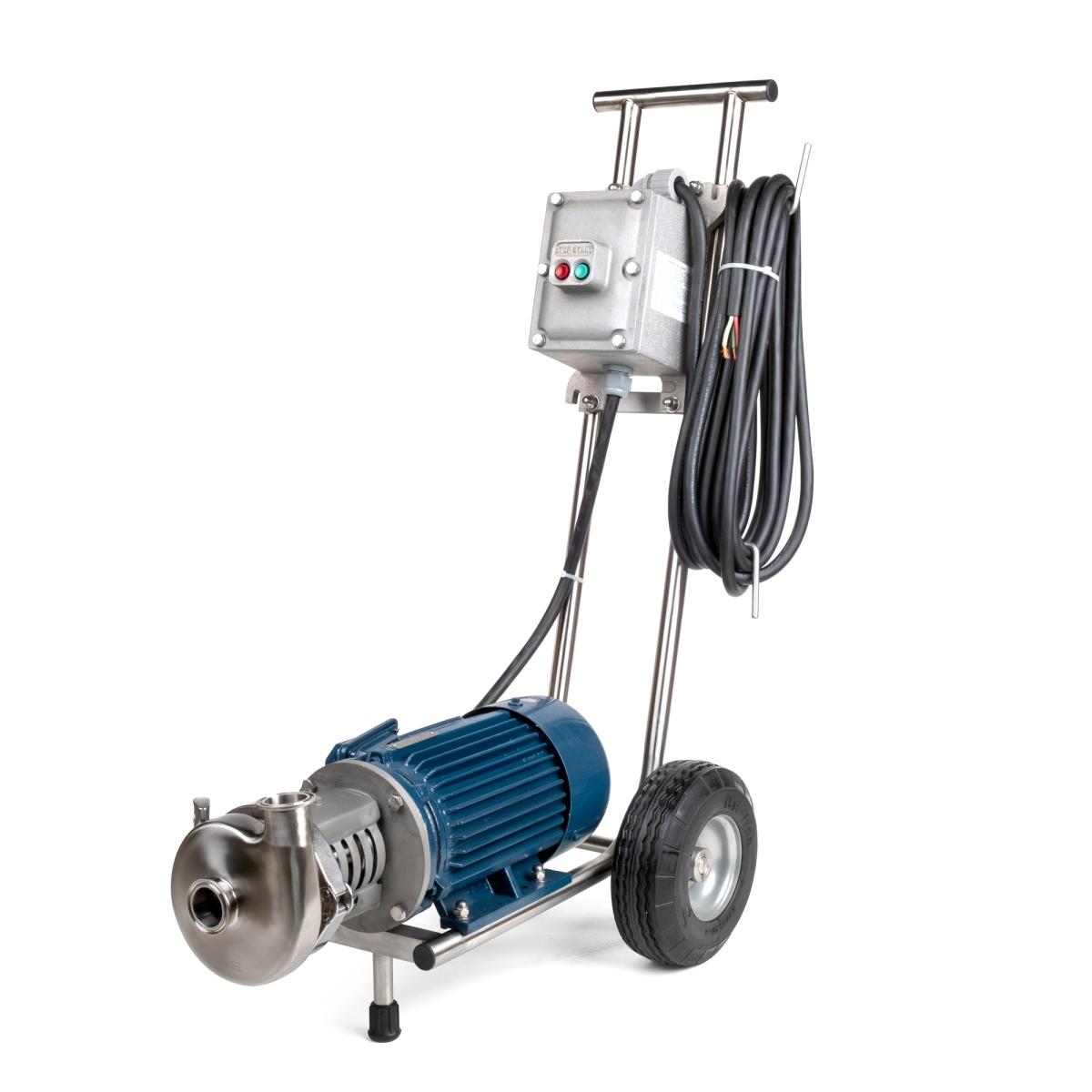
As you can see, higher cost or fewer features. These are trade-offs distillers soon become all too familiar with when it comes to electrical equipment in the distillery.
One way to sidestep this is with pneumatic equipment—equipment that runs on compressed air instead of electricity. Pneumatic equipment—particularly groundable pneumatic equipment that discharges static buildup—can vastly reduce the risks associated with igniting flammable vapors.
We sell a number of items that can run on compressed air rather than electricity: pumps, bottle rinsers, and fillers, as well as conductive hose that helps dissipate static electricity that builds up as liquid flows. We'd also be happy to talk to you about your facility's layout, and how we can customize our electrical equipment to keep the dangerous parts out of the "electric sombrero of death".
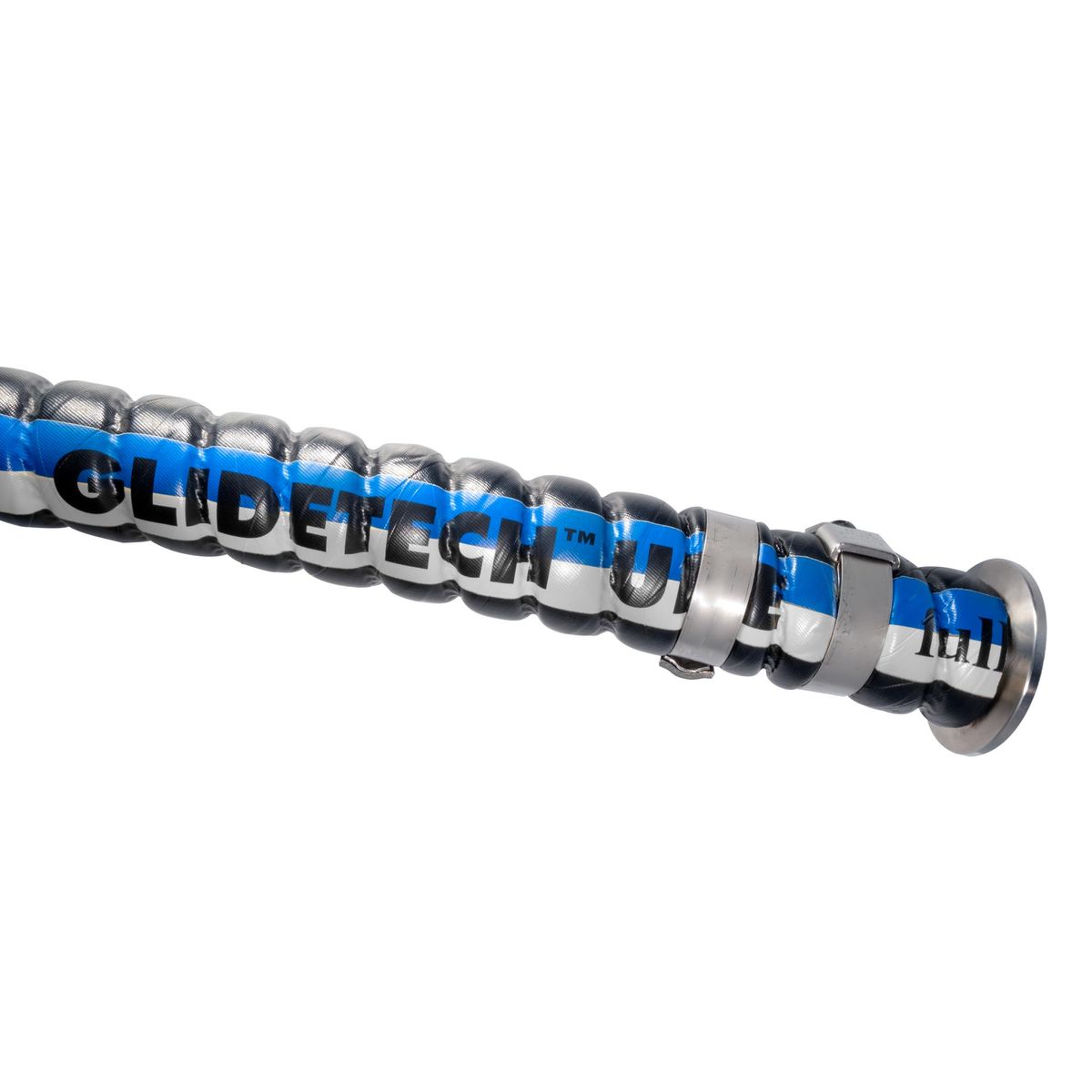
Tip #2: Dry & Filter Your Compressed Air
If you've decided that pneumatic equipment is the way to go for your distillery, great! A high-quality air compressor that puts out enough volume to power all your equipment isn't cheap, but it's a great investment, and many pieces in your distillery will require compressed air to run anyway.
But one area we often see people skimp—to their great detriment—is in equipment to clean, dry, and filter the compressed air. Air compressors take in ambient air. If the air is humid, that humidity will turn into water. The water will mix with any dust or dirt in the lines and make its way into your equipment where it will wreak havoc. Parts inside your pneumatic equipment may be lightly lubricated. When water enters the system it can displace the lubricant, increase the friction, and turn the insides of the equipment into a gooey mess that will self-destruct. Sometimes within a matter of hours.
We don't sell refrigerated air dryers, but we strongly recommend that anyone who uses compressed air in their facility purchase one. They can run $800-$1,300, but in short order they will easily save you that much in replacement parts, downtime, and voided warranties. Work with a company that specializes in compressed air equipment to see what they recommend.
Tip #3: Test Equipment When it Arrives. Don't Wait Till You Need to Use It
Sometimes when you receive equipment you're still setting up your space and aren't sure about the layout or where equipment will go eventually. Still, we recommend unpacking, inspecting, and testing equipment as soon as you can after it arrives. Some of the most difficult situations we encounter involve people who waited till the last minute to unpack their equipment and test it. They may find hidden damage that occurred in transit, or discover that they thought they had the right adapters to mate up to the equipment, but they got the wrong size.
Whatever the case may be, unpacking and setting up your equipment quickly ensures that it's ready for you on its first day of production, that you understand how it works, and you're ready to put it to use.
Tip #4: Keep Spares On-Hand for Mission-critical Equipment
They say you don't miss the water till the well runs dry. Likewise, you probably take something like a working pump for granted, and don't consider just how much of your production rests on it. Without it, your spirits are stuck in place.
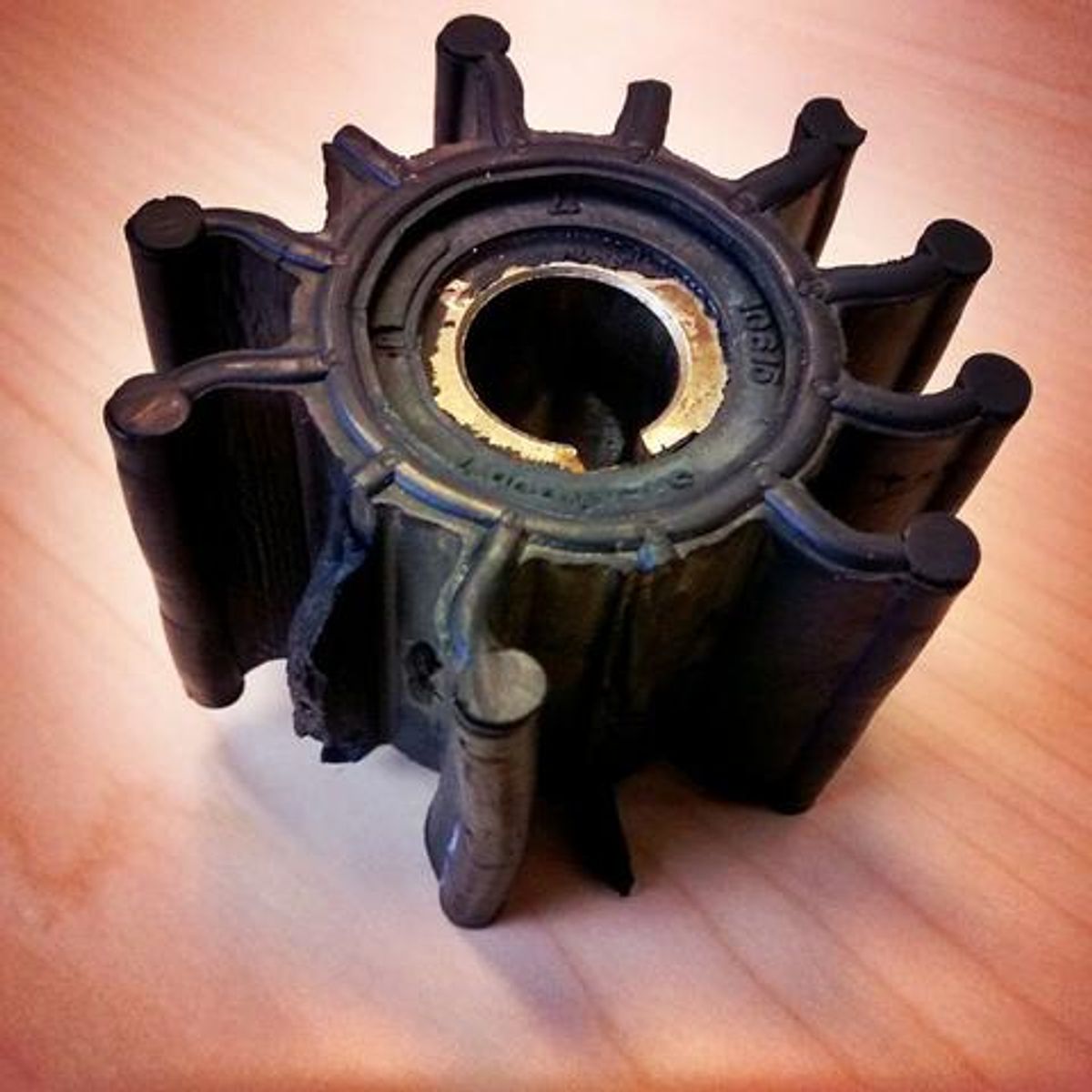
Luckily, we keep spares of many common wear parts for the products we sell. But even we run of out of stock from time to time. It's best to always keep at least one spare of common wear parts on your shelf. We're happy to tell you which parts of the equipment you purchased from us are likely to need more frequent replacement based on wear and usage, and we recommend you keep at least one spare ready to go. We promise: whatever it costs up-front to stock it, you'll save on production downtime and overnight shipping costs.
Tip #5: Get Help If You Need It
If you're just starting up, you don't need to go it alone. Some customers that we talk with are trying to build a business plan, build or lease a space, learn about the equipment they need to purchase and how to use it, design their packaging… It's a lot. Luckily there are a lot of people who've done it before, and some professionals that can help you get setup. If we don't have the information you seek, we can probably put you in touch with someone who does.
For tips on what equipment to buy first, you can read more about our Top 3 Craft Distillery Tools here. You can also learn more about our bestselling distillery bundle on the product page here.
- © 2024 TCW Equipment, LLC
- Phone: (707) 963-9681
- Monday–Friday, 8–5 pm PT